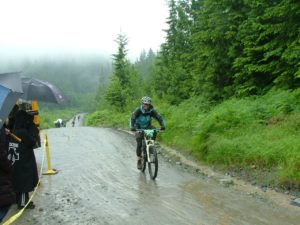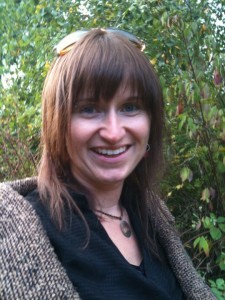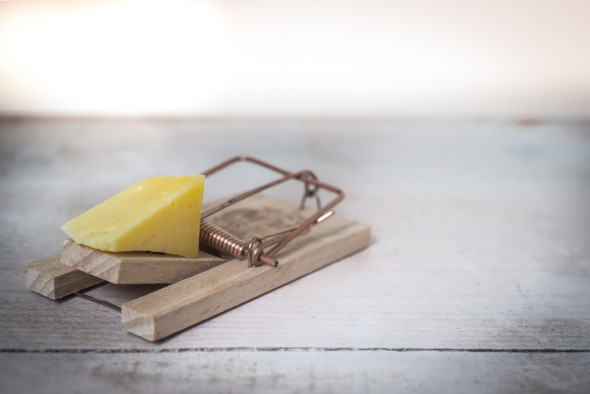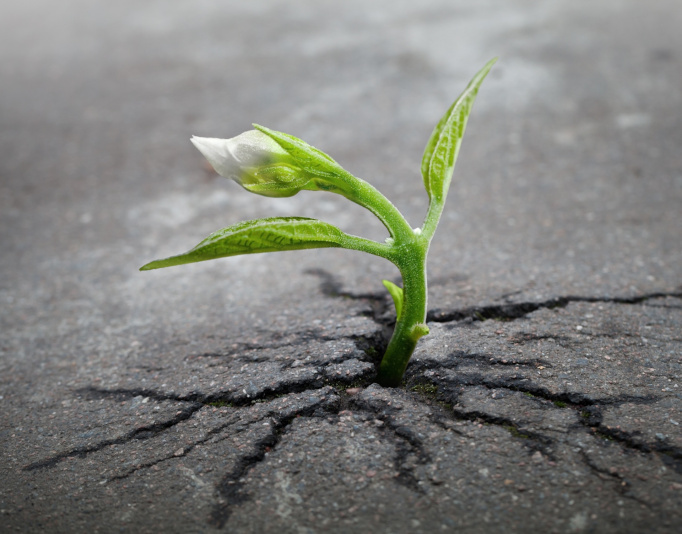She lived an unhealthy lifestyle of daily trips to the vending machine and eating a huge plate of hash browns smothered in ketchup for most of her meals. She was diagnosed with depression and chronic fatigue. Today, Suzanne Jolly has devoted her life on physical and mental health for yourself and others. Helping individuals, communities and organizations create a healthier world.
In this interview, Suzanne talks about her journey in this transformation. She opens herself to reveal the biggest challenge she faced towards leading a healthy lifestyle. She talks about how she completed a 67 kilometer mountain bike race, something she never thought possible and comes out of the closet by showing her true “messy” self.
Meet Suzanne Jolly:
Antonia: Can you tell us about your journey in your transformation from living an unhealthy lifestyle to devoting your life on your health and the health of others?
Suzanne: Sure. I used to live a very unhealthy lifestyle but, I didn’t think of it as such. I didn’t know the difference between what it would mean if I ate a chocolate bar versus a salad. I would eat a can of chunky soup and thought that the vegetables in the can were my vegetables. Potatoes are a vegetable, so there you go; I thought hash browns are relatively healthy. So, it was a lack of education and understanding what it meant to be unhealthy and how it was impacting my life. I was actually a smoker for over a decade as well because I didn’t see the importance of taking care of myself in that way. Until I started living with someone and saw that their life was filled with energy and didn’t wake up tired everyday and thought, “why can’t I feel like that,” and didn’t realize that I was sick. I started paying attention to medical doctors. They were basically diagnosing me and giving me anti-depressants. That didn’t quite seem like the right fit. When I started graduate studies, I had the privilege of being surrounded by many people who taught me, in non- judgmental ways, about how the choices that I was making were negatively impacting my health and that my “normal” wasn’t necessarily a “normal” that I had to accept.
I changed my habits and my choices during graduate studies. I stopped smoking, started eating healthy and taking better care of myself. I found that I was suddenly inspired to climb mountains, ride mountain bikes and back country ski and I had the energy for it all which I never had that before. It was quite a gift.
I found that a lot of the health information that is out there came across as judgmental with, “you should be doing that or you should be doing this.” I hate it when people “should” on other people. So, I approached health with a perspective of, if we had more understanding and compassion and real perspective about health and well being, then people could choose it and see themselves as capable of becoming healthy. As a result, I wanted to share that opportunity with other people who hadn’t gained access to that information or understood that the way they were feeling was not the way they had to feel all the time. So, I ran a non-profit doing substance abuse prevention with teens and family and talked about empowering ways to make healthier choices. Then I did health promotions at the University of British Colombia working with organizations and individuals to promote healthy opportunities. Now, I work for the school of kinesiology, do private consulting and publish a holistic magazine called “Fruition”.
Antonia: That’s amazing! I believe that we pretty much know the basics of a healthy lifestyle (eat healthy and exercise). In your experience, what is the biggest challenge that people face in choosing to be healthy?
Suzanne: Self Efficacy.
Being able to understand and believe in one’s capabilities that they can be that healthier person.
It’s a resistance to feeling like you can never succeed in becoming that person. So, it’s getting an understanding of one’s ability to be different and that it can be enjoyable which was my biggest challenge and that I have seen in others.
Also, exposure to information about the difference in terms of knowing that there is another option and what it would mean to feel differently. Because, it can become normal to be unhealthy and heading out for donuts all the time or the vending machine as I did. It’s very difficult for people to see themselves as who they could be when they are stuck in an unhealthy place whether it be mental or physical health. It makes you feel as though you can never be that other person who’s filled with vitality and joy and inspired to go out for a run or mountain bike.
Antonia: So, we get stuck in a comfort zone of living an unhealthy lifestyle. It’s an image of the way we see ourselves and not being able to see another image of who we can really be?
Suzanne: Definitely. It’s like being 4 feet tall and one day envisioning yourself as 5 feet tall. It’s practically impossible to put yourself in that image and seeing yourself as such. But, yet it’s amazing how you can grow.
Antonia: Suzanne, you mentioned mountain biking. Last year you completed the 67-kilometer Test of Metal mountain bike race. You had never before done any racing. What sparked an interest in participating in the race? What challenges did you face either during the time you prepared for it or during the 6.5 hours to complete the race?
Suzanne: My friend Glenn had been a long time volunteer for the Test of Metal to raise funds for CF (cystic fibrosis) and awareness of the disease. One year he pushed me to volunteer to drive the bus. About a year later, Glenn passed away from a lung infection from living with CF. That following spring, I was invited to ride in his memory to raise money for CF. I turned them down because I had just bought a bike for the first time. I could barely ride any trails, it was horrible (laughing). But, I told them, “you know what, ask me next year because I will have a whole year of riding and I’ll be better.” They remembered and asked the following year. Well, I wasn’t that much better but, I thought, how could I possibly say no? This is my friend that I would ride for and decided to take it on. At the time I didn’t really know the length of the race and what it would mean. Sometimes it’s a good thing to be naive (laughing). So, I signed up for the race and trained extensively, but not as much as many people told me I should be. I was struggling to do this once section of the race called “the power house plunge”. The plunge is so steep and there are trees all in between as well as huge rocks, it’s basically like hell on a mountain bike, especially when you are not a good mountain biker (laughing). So, I kept trying to ride this section, I really wanted to do it. It got to a point where I had quite a few days of crying on the trail while trying to train for this ride. One of my friends turned to me and said, “What are you doing? You’re killing yourself trying to do this race.” I told him, “I can’t not do this race. I need to be able to do it. I’m doing this in memory of Glenn and I can’t let his family down and can’t let down all these people who donated money in supporting me in riding this. I have to do this.” That’s when my friend convinced me to run that section of the race with my mountain bike on my shoulder. Thank goodness for that because during the race, the mud was like quick sand hugging your tires as you tried to push through the mud. So, when I got to that section, I wasn’t riding. I put my bike on my shoulder and realized that was the best way I could do it. As long as I still did the race, then, I could complete the race, honor my friend and that was still an amazing achievement.
I had set the bar so high to be able to ride the whole thing, that it was an unrealistic expectation for myself.
I was able to do the whole thing, but in my own way.
Suddenly, that thing of “should be riding the whole thing” didn’t seem important.
I was just balling my eyes out in the pouring rain trying to go up a 9 mile hill which is another highlight as well. I was in so much pain trying to ride up that one hill, let alone the 3 hours of riding before you get there. So, I definitely didn’t think I could do it and I just had say, “well, I’m signed up, I am honoring my friend, I have to at least try.” I had made a commitment and couldn’t be the person who gave up.
I realized that being in a race of that kind, is not your physical strength the biggest challenge, because the next day, I was able to walk just fine and wasn’t even soar.
It was the mental capacity and the actual ability to believe that I could do it.
Sometimes I didn’t. I would tell myself, “I’m dying, I am going to die on this hill, and I’m not going to make it.” I’m riding and I’m walking and I’m riding and pushing my bike and looking up at the sky in so much pain. I cried my eyes out thinking, “I’m never going to be able to do this race in honor of my friend.”
Then, I could see and hear people saying, “Keep going Suzanne, you can do it, c’mon you’re almost there!” The only reason that I was physically and mentally able to keep going during that 6.5 hour long ride in the pouring rain and the mud was because other people saw that I could do it and believed that I could do it, even when I lost the vision of my capabilities. I realized that sometimes it’s not just within yourself and your own belief, but being surrounded with people who tell you, “You can do it. I can see you 5 feet tall. I can see you up on top of that hill.” It’s their will and their passion for what you’re trying to complete that keeps you going at times when you lose faith in yourself.

Antonia: Having lived this experience, would you say that there are similarities in challenges in everyday lives to achieve goals we set for ourselves.
Suzanne: I really believe that we learn so much through our bodies and our accomplishments with our bodies that apply to daily life. I mean, c’mon, I believed that I couldn’t do that race pretty much consistently for quite a while. Yet, I was able to complete something I never thought I could. I still have problems remembering that I’ve done it. When people say, “you did the Test of Metal!” I say, “yeah, but I was last in my age category in terms of my speed.” So, I’m always down pointing it. I think that is one of our weaknesses as human beings. We always have this sense that we need to be humble.
It’s important to be humble but, it’s also important to really appreciate what we can do and stop down playing all the time what we’ve accomplished because then we stop believing that we can accomplish the next goal.
You can only keep on moving up. Even when you have set backs, you’ll realize that they aren’t setbacks. They actually help you get to the next step and aspire to something new and different.
Antonia: You are so open about yourself and make everyone feel that vulnerability is not a weakness, but strength. You wrote about a realization you had over the fear of, “how can people take me seriously.” What was the reason behind this sudden lack of self-esteem? What was your realization?
Suzanne: Well, I see a lot of people around me whom I really admire. They are very strong willed, confident women in the workplace. When I look at them, I see their outside: their appearance, their image. I was nothing like that and had doubts about my capabilities. I mean, I have dirty dishes in my sink, in my bedroom and in my car. I have laundry all over the place. Sometimes, I would really wish that I had make up on or done my hair perfectly. All these crazy expectations made me feel so small in comparison to these amazing people. That’s what made me bring out this fear of, “I can’t believe people actually take me seriously.” I worried that if they found out who I really was, they wouldn’t take me seriously at all and think really poorly of me. I expressed how I felt to a woman that I admire and she said, “Well, everyone feels that way, everyone has the dirty dishes in the sink.”
There’s always that thing of wanting to look like or be like or achieve that which we haven’t yet.
We don’t realize that if we had, then we wouldn’t be living anymore because we would have done it all.
So, it was the comparing of my insides to everyone else’s outsides that made me feel that I didn’t really deserve all the kudos that I get. It’s important to own it and say,” Yeah, I did something amazing,” which is pretty hard to admit.
The more authentic we are, the less our fear will minimize our capabilities.
That’s why I have tried to put myself out there and be honest about life’s daily challenges around being this perfect person that the world tells us to be. By pretending to be “perfect” and denying my messy true self, I am creating a world that expects me to be different.
Antonia: Doesn’t feel like a weight was lifted off your shoulder by saying, “this is who I am?”
Suzanne: Yeah, it’s almost like I came out of the closet (laughing). I have dirty dishes and you know what, the world still loves me. In fact, loves me more for being real. So many people feel that pressure to hide the “mess” of their lives. If we were very honest about it, we would realize that all of us have it. The “mess” of life is what makes us enjoy life and enjoy living. It shows who we really are and that is what makes us perfect. We are perfect in the messiness that we are.
Antonia: Why do you think that we are afraid of showing who we really are? Of being real and hide behind our imperfections?
Suzanne: There are the societal expectations about what life is supposed to be. People “should” all over each other in terms of “you should be doing this” or “you should act like that.” A lot of our culture that has been influenced by the media portrayal of that. In response to this, we end up being judgmental of one another. Some of that is around our own personal sense of self esteem. We end up comparing ourselves to each other to gage how we are doing in life. Comparing ones inside to someone else’s outside. In others words, comparing how I feel to what I see as someone’s portrayal to the outer world. This is a dangerous way to treat oneself as it creates a dynamic that is really unhealthy for us all. The expectation of balancing family life and work life and being able to do that successfully. Because if you don’t do that successfully, you don’t belong. We hold each other to such criticism.
We criticize each other and bring each other down because we feel so poorly about ourselves.
We all struggle with that. I still do too. This creates an unrealistic expectation for each other to be this perfect self. So, I try to check my criticism of others more often. I create the expectation that they are doing the very best they can every day and if it’s not the best that I want, then maybe my expectations are a little unrealistic for them or I don’t know their full story. Hopefully, they will have the same compassion and understanding for me when I am not my best self. My best self doesn’t mean to be perfect every day.
Antonia: How can we overcome our fear of being our true self?
Suzanne: Well I certainly haven’t gotten it all down pact (laughing). But, starting by identifying the people who really care about you and ensuring that you practice with them. They are the “safe” people to share your true self. Other people will be more likely to judge you. Also, it’s important to have compassion for those who will judge you. Because, they will judge you. The fact is that they are either jealous or low in self esteem or feeling vulnerable in some way by your courage to be authentic. They are likely unhappy with themselves. Having compassion for those who are judgmental while you force yourself out into the open and into the sunlight can really be an empowering place to absorb what could be perceived as negative feedback. Surrounding yourself by people who cherish the honesty and openness that you can be your own self.
Antonia: Thank you Suzanne.
How about you? Are you ready to be your true self?






